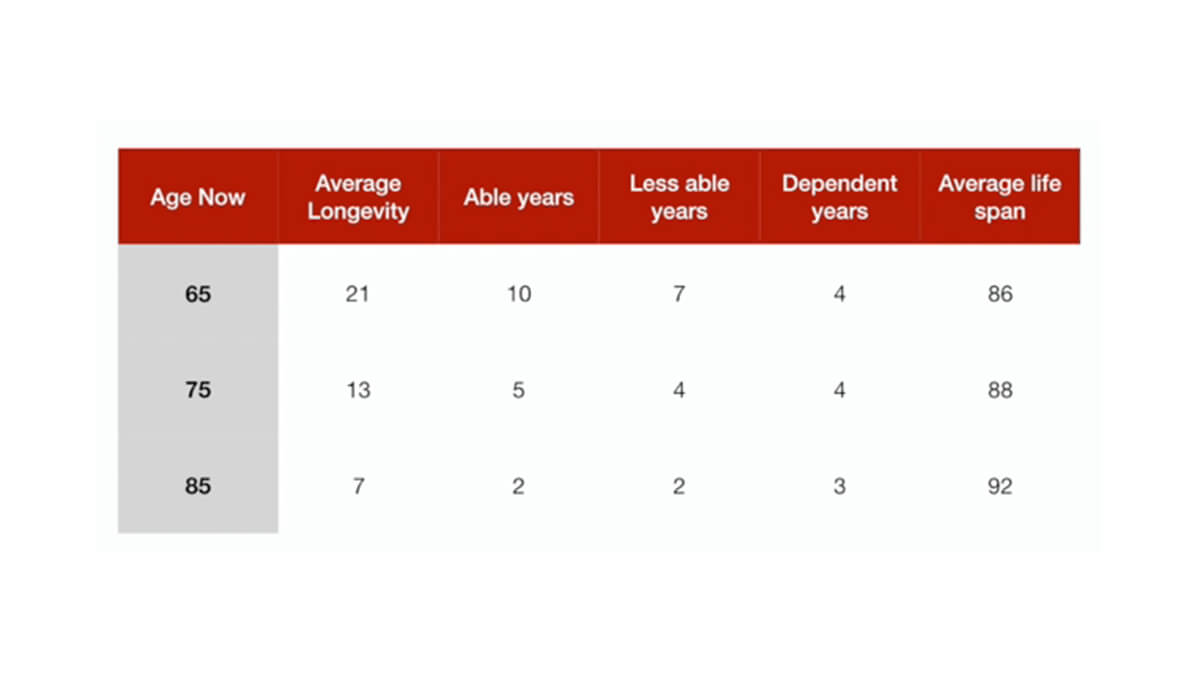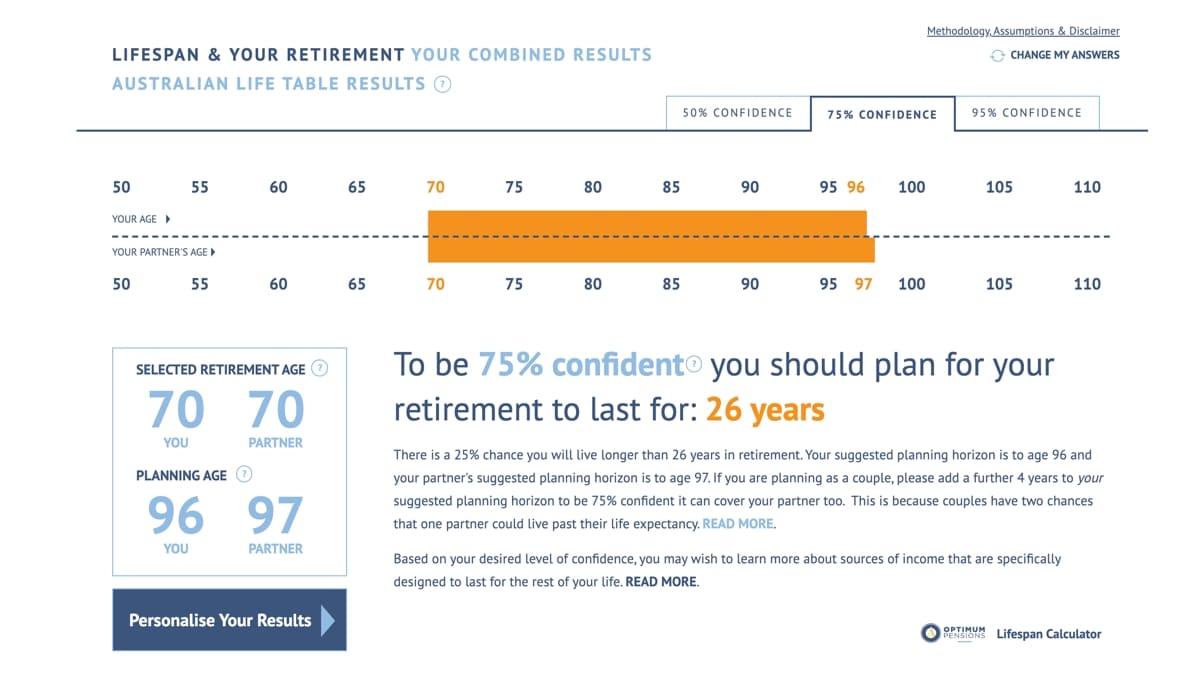In this video interview David Williams from My Longevity talks about the 3 stages of ageing, and how long each stage generally lasts.
Transcript
What are the 3 stages of ageing, and how long does each stage last?
About three years ago, some very interesting information started to become available, encouragingly from the Australian Institute of Health and Welfare, which is a government policy institute that does this kind of research.
They showed that the rest of our life can typically be looked at in three stages. The simple names for those stages are when you’re able, how long you’re able. The next bit is when you’re less able and the final bit is when you’re dependent.
I’ll come to dependency later as a special item because it’s important, but at age 65, a typical 65 year old, male or female, has about a life expectancy of, let’s use a round figure of about 20 years. Women a bit longer, men, slightly less.
About half that typically will be able. About another six or seven years will be less able, and then there will be a period of dependency – about at age 65, or women, on average, about five years, for men, a bit over three years.
So for the first time we’ve got a sense of how things may play out. Now remember, these are averages, so they’re not necessarily you or me, but it’s a pretty useful rule of thumb to go by and when you think about your own circumstances and how you are, you’ll get a sense of whether you’re likely to be more able or less able for a period of time.
But it gives you a good mental approach that for at least half of the rest of your life, you’re likely to be in pretty good shape. So questions like, “Should I retire at 65?”, you start to get into focus because if at 65 the typical person has about 10 years where they are pretty functional, does that 65 mean anything or does it really rely on how you feel about what you want to do, which is important.
So it’s an important part of decision making is understanding what the context of the decision is. That’s what we’re trying to do.
So the interesting thing is that as you get older, it doesn’t work out quite as you might expect. At 65 the average person, male and female altogether, lives to about 86. But if you get to 75 you’ve added another couple of years to that. And what’s more, the stages have changed a bit too.
So what happens is you get more able and less able life as you get older, and your dependency tends to be shorter.
Now that’s really interesting. So if you aim to be as healthy as you can and your life expectancy increases, it’s not all bad, it tends to be more good, and the dependent period gets shorter.
So that’s a pretty big boot for having a crack at living well, isn’t it? Because the interesting thing is that when you look at the SHAPE analyser and all the questions we ask, there is much about living well as they are about living longer. Living longer is a useful number to work with, but what most people want is to live as well as they can for as long as they reasonably can.
So the information we’re providing we think helps people to be properly informed, and that’s our mission.
David Williams is the founder of MyLongevity, which helps you answer questions such as ‘how long could I live?’, ‘what can I do about it?’ and ‘what will be my quality of life?’. Click here to take a free SHAPE analysis.




Leave a comment
You must be a SuperGuide member and logged in to add a comment or question.